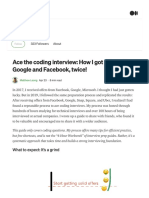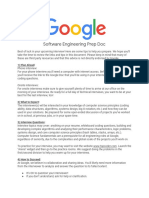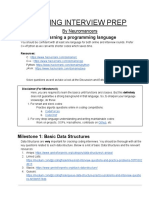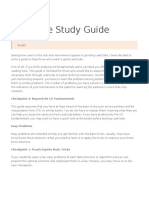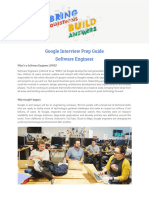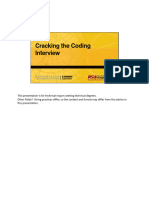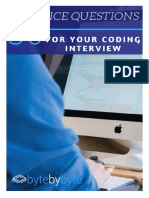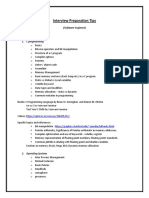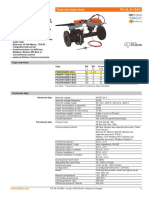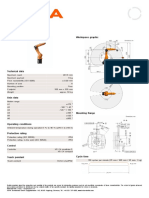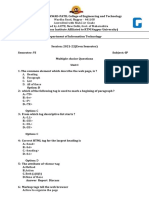0% found this document useful (0 votes)
920 views3 pagesRippling TPS Prep (Coding)
The document provides information for an interview at Rippling and tips for coding interviews in general. For the Rippling interview, candidates will be tested on problem-solving and core CS skills through coding challenges on zoom. Helpful tips include discussing solutions with the interviewer, avoiding complex solutions, understanding algorithms and data structures, and clarifying requirements around time and space complexity. Additional resources are provided for coding practice problems.
Uploaded by
trip06072023.keralaCopyright
© © All Rights Reserved
We take content rights seriously. If you suspect this is your content, claim it here.
Available Formats
Download as PDF, TXT or read online on Scribd
0% found this document useful (0 votes)
920 views3 pagesRippling TPS Prep (Coding)
The document provides information for an interview at Rippling and tips for coding interviews in general. For the Rippling interview, candidates will be tested on problem-solving and core CS skills through coding challenges on zoom. Helpful tips include discussing solutions with the interviewer, avoiding complex solutions, understanding algorithms and data structures, and clarifying requirements around time and space complexity. Additional resources are provided for coding practice problems.
Uploaded by
trip06072023.keralaCopyright
© © All Rights Reserved
We take content rights seriously. If you suspect this is your content, claim it here.
Available Formats
Download as PDF, TXT or read online on Scribd
/ 3










